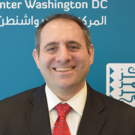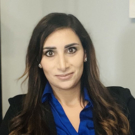Speakers
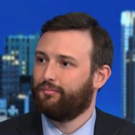
Brian Hauss
Staff Attorney with the Speech, Privacy, and Technology Project
American Civil Liberties Union
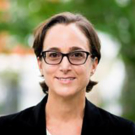
Maria LaHood
Deputy Legal Director
Center for Constitutional Rights
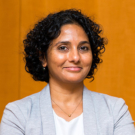
Meera Shah
Senior Staff Attorney
Palestine Legal
Moderator
About the Webinar
On May 26, Arab Center Washington DC (ACW) hosted a webinar titled “The Targeting of Palestine Activism in the United States: Suppression of American Constitutional Rights.” Speakers were Brian Hauss, Staff Attorney with the Speech, Privacy, and Technology Project at the American Civil Liberties Union; Maria LaHood, Deputy Legal Director of the Center for Constitutional Rights; Yousef Munayyer, Nonresident Senior Fellow at Arab Center Washington DC; and Meera Shah, Senior Staff Attorney at Palestine Legal. ACW Deputy Executive Director and Senior Research Fellow Tamara Kharroub moderated the discussion.
Yousef Munayyer began the discussion by outlining the history of Israeli suppression of Palestinian activism, acknowledging it as “something that has been transformed and internationalized to target dissent against Israeli policy across borders.” He recognized three phases in recent history of Israel’s relationship with dissent, coinciding with the ascent of right wing Israeli political parties. He placed the first phase between 2005-2010, in the wake of Camp David and the Second Intifada and during the 2008-2009 massacre in Gaza, as Palestinian and global civil society increasingly called on holding Israel accountable. In addition to attacks on elements of Israeli civil society, such as human rights groups and NGO’s, which expressed solidarity with Palestinians or were critical of Israeli government policy, this period also saw the Israeli government take steps to suppress such groups. Laws were passed bringing them under financial scrutiny, penalizing the commemoration of the Nakba, and otherwise targeting activism in support of the Palestinians.
Munayyer marked 2010, and the attempt to break the siege of Gaza, as the beginning of the second phase. The flotilla carrying humanitarian assistance to Gaza, largely conducted by global civil society, “shocked the Israeli political establishment into action around further repression of any kinds of global civil society efforts.” While some promoted the “hasbara” view of promoting the Israeli narrative to address dissent, the perspective that became dominant instead favored attacking the sources of dissent themselves. In pursuit of this, the Israeli government began working with an international network of allies to restrict its critics across borders, particularly through lawfare, smear campaigns, and the implementation of anti-BDS legislation in other countries. In 2015, this strategy became formalized in the institutions of state with the creation of the Israeli Ministry of Strategic Affairs, tasked with supporting this network in pursuit of these goals. The following years saw an increase in the prevalence of these tactics, as well as the promotion of particular definitions of antisemitism abroad which would encompass such dissent and enable their suppression.
Maria LaHood introduced the Center for Constitutional Rights (CCR) as a non-profit organization based in New York that was established in 1966 during the agitation for civil rights and continues to be a center for social justice in the United States. She said that the center started over a decade ago to get calls from students and activists in the US about being intimidated and harassed to suppress their advocacy for Palestinian rights. She cited many cases of law at the federal and state levels that focus on the issue of boycotting Israel. About ten years ago, the Israeli Ministry of Foreign Affairs was involved in supporting cases against activists and then the new Ministry of Strategic Affairs took over in a new aggressive campaign of harassment. LaHood said that her center started filing anti-SLAPP motions (Strategic Lawsuits Against Public Participation); basically, meritless lawsuits that target protected speech.
LaHood said that CCR also participated in defending people and organizations at the state level. The idea was to discourage individuals and organizations from criticizing Israel by threatening lawsuits and payments for damages. The American Studies Association passed a BDS measure in 2013 boycotting Israeli universities because ISA felt that “Israeli higher education institutions were complicit in Israeli human rights violations.” It was the most prominent faculty association that did so. It faced unprecedented attacks, legislative efforts, and legal threats to punish it. The American Anthropological Association was to vote about the same issue, and it was intimidated into voting the boycott measure down. Airbnb was another entity that succumbed to pressure as well; after it pulled advertisements for apartments in Israeli settlements, it was intimidated into reversing its position. Ben and Jerry’s was another company that stuck to its guns and now is being denied licensing in Israel. LaHood concluded that “even though the cases are meritless, they are a distraction and a nuisance, and worse of all, they are chilling, and that is the purpose.”
Brian Hauss spoke of the ACLU’s work to defend free speech and people’s right to express political opinion in whichever form they choose as the First Amendment allows them to do. He discussed how the bipartisan Israel Anti-Boycott Act has been proposed in Congress but has not yet passed. The act would make boycotting Israel a criminal offense punishable by long prison terms. He speculated that if Republicans win the upcoming midterm elections, they may very well pass the law. Hauss spoke about the state-level legislation and laws that punish boycotts, mentioning that New York state actually has a blacklist of businesses that support boycotts. There and in other states, government contractors have to sign pledges that they will not participate in boycotts against Israel or they will lose their contracts.
To the ACLU, Hauss said, all such laws violate the First Amendment. He also pointed out that if these laws stand, then other issues can be next. He stated that boycotts are an old American tactic, since the War of Independence (Boston Tea party). Alexander Hamilton participated in abolitionists’ boycott against goods from the American South. They have been used in many instances such as the Montgomery bus boycott and the boycott against apartheid South Africa. Conservatives used them against French goods after France decided not to support the American war on Iraq. Emphasizing that boycotts are political acts protected by the First Amendment, Hauss said that “there is widespread recognition once you step outside the Israel/Palestine debate that boycotts are… a fundamental part of political expression in the United States.” Hause cited many examples from states that use unconstitutional anti-boycott legislations that contradict the First Amendment and have been struck by federal courts that ruled that political opinion is free speech and cannot be silenced.
Meera Shah said that there have been at least 2,000 incidents of suppression of free speech in the United States regarding efforts to criticize Israel or join boycotts against it. She said that the two major tactics have been false accusations levied against activists and efforts to intimidate and silence student groups on university campuses. Falsely accusing activists of being anti-Semitic has been the most common form of intimidation. Shah said that there have been efforts to redefine anti-Semitism to include nearly all criticism of Israel, as is the case with the definition of the International Holocaust Remembrance Alliance that has been adopted in some versions by Florida, South Carolina, Texas, and Arizona. In 2019, Donald Trump signed an Executive Order that asks federal agencies to use this definition to investigate allegations of anti-Semitism.
The other form is the intimidation of students and student groups on campuses in the United States that express solidarity with Palestinians. She said that “college campuses continue to be a significant context for Palestine solidarity as well as the backlash to it.” Nearly 60 percent of cases with which Palestine Legal dealt in 2021 targeted students and scholars on 81 campuses; this number is evidence that there is an effort to try to intimidate and silence students on campuses. Punishments of activism include delaying funding for events, investigating students, requiring so-called “both sides” panels, insisting on safety and security at events, pressuring advocates to change speakers, and cancelling events. Shah cited many examples of campuses, such as Tufts University, George Washington University, and University of North Carolina at Chapel Hill, and speakers such as Angela Davis. She said that the efforts are organized by Israel’s Ministry of Strategic Affairs that cooperates with rightwing movements in American society and on campuses. She concluded by saying that “it is important to note the role of the rightwing groups and what it signals about the anti-progressive nature of the anti-Palestinian repression regime across the different sectors.”
Featured image source: Flickr/Joe Catron

